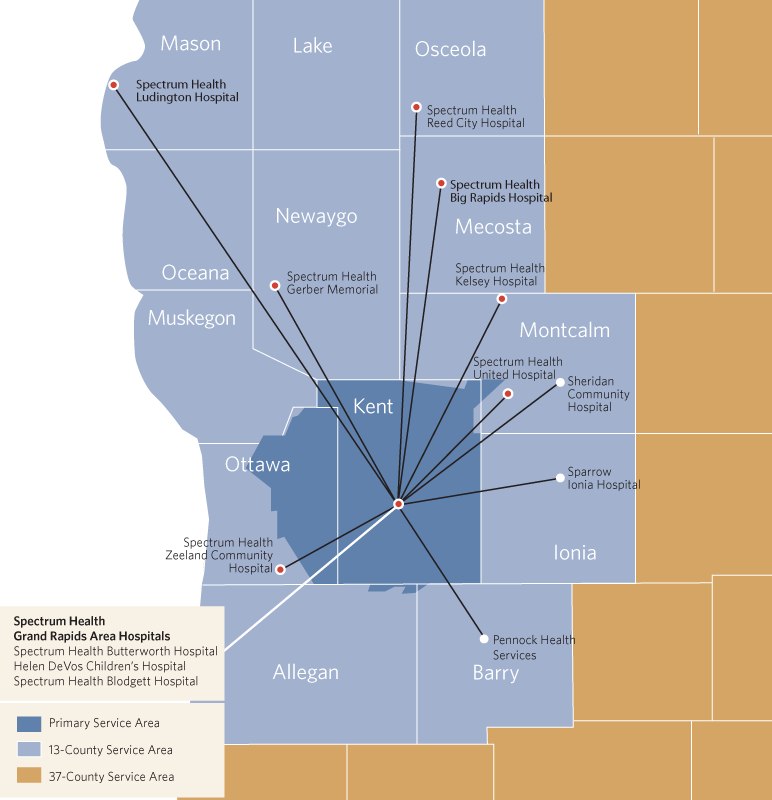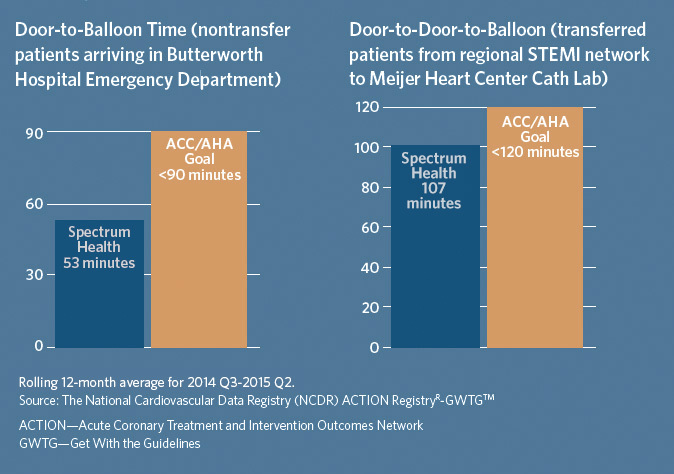
More information for you:
When every minute counts
We track the time it takes from a patient’s first point of care to an intervention in the catheterization lab at the Meijer Heart Center. We consistently perform better than national goals. Here’s how we do:

The Wege Chest Pain Center at Meijer Heart Center was the first of its kind in West Michigan accredited by the Society of Cardiovascular Patient Care.


